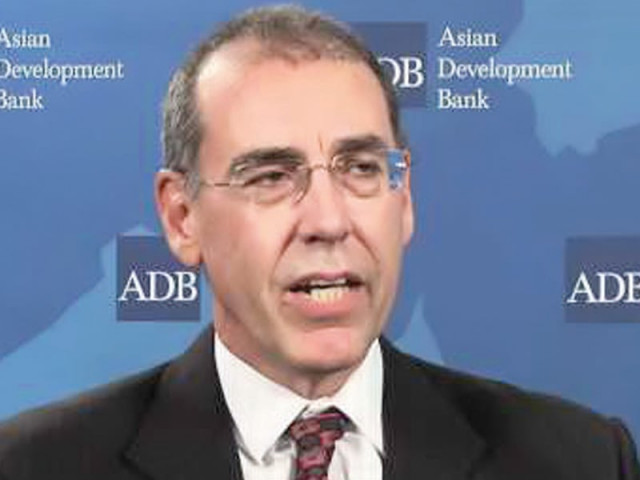Rating downgrade raises risk premium on investment: ADB
ADB says rating cut, circular debt main hurdles in way of investment.

Speaking to the media after conclusion of his visit here on Friday, ADB’s Director General Private Sector Operations Department Philip Erquiaga said the credit rating downgrade has raised risk premiums on investment.
Erquiaga was visiting Pakistan to review lending activities and risk management and explore opportunities for future lending and investments in the private sector. His comments came at a time when the country was struggling to cope with worsening economic indicators and their fallout.
He urged the government to take effective measures to reverse the situation. However, the government has so far shown reluctance to accept the adverse implications of the cut in credit rating.
ADB’s Country Director for Pakistan Werner Liepach, who was also present in the media briefing, said the rating downgrade was a serious concern and the reversal of the situation was highly unlikely before general elections.
In July, New York-based Moody’s – one of the three largest credit rating agencies in the world – slashed Pakistan’s foreign and local currency bond ratings from B3 to Caa1, equal to the lowest rating Pakistan has ever got.
Erquiaga cautioned that no one would invest in Pakistan when investors were worried that their payments would be delayed because of the circular debt and there would be problems in getting uninterrupted power supply. Security situation was another concern for the investors, he said.
Erquiaga said in many ways Pakistan was facing the same challenges in attracting new investment as other countries were. He stressed that transparency, consistency of policies and processes were essential for promoting investment in the country, adding rules must not be changed arbitrarily and terms of agreements must be respected.
“While moving forward, the government must maintain transparency in privatisation and tendering,” said Erquiaga.
Defending the privatisation process, he said contrary to the impression created by vested interests, the privatisation of Karachi Electric Supply Company was a success story. “I have visited the KESC and I am impressed the way the company is working to reduce transmission and distribution losses. The ADB has given $150 million to the KESC management.”
Highlighting the bank’s performance, he pointed out that the ADB has extended loans to the private sector in the areas of energy, trade finance and capital markets. Its private sector lending portfolio in Pakistan stands at $622 million in 10 projects.
The DG said the ADB was looking for opportunities to facilitate new investment in establishment of independent power plants.
To a question about funds required for setting up terminals for import of liquefied natural gas (LNG) and liquefied petroleum gas (LPG), the DG said at the moment no such project was ready for investment. But he expressed the bank’s willingness to help Pakistan diversify its energy mix as well as assist the private sector in this regard.
Liepach said Pakistan would have to ensure consistency of policies for seeking ADB’s investment, which at the moment was lacking.
Published in The Express Tribune, September 1st, 2012.


















COMMENTS
Comments are moderated and generally will be posted if they are on-topic and not abusive.
For more information, please see our Comments FAQ